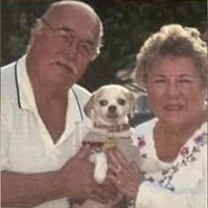Pack Mentality Applies to Quitting Smoking Too
Study find smokers likely to quit in droves instead of isolation.
May 22, 2008 — -- Sure, nicotine is addictive, but kicking the smoking habit can be contagious, according to a study published Wednesday in the New England Journal of Medicine.
Tracking more than 12,000 people in 30 years, researchers James Fowler and Nicholas Christakis saw a viral effect of people quitting.
Their study found that for couples, when one spouse quits smoking the chances that the other spouse smokes decrease by 67 percent. When friends quit, the chance of their friends smoking decreases by 36 percent; for siblings, the likelihood drops by 25 percent.
In some social circles, people quit in domino effect until almost the entire group of family and friends did not smoke. And in another demonstration of the power of social pressure, some individuals who kept smoking while others around them quit became socially isolated over time.
But the researchers noted that those results were not absolute. They noticed in their model that some clusters of friends kept on smoking over the 30-year period -- suggesting that these are some groups of friends who stay staunch in their smoking habits.
Fowler, an associate professor of political science at the University of California, San Diego, takes a positive view of the study, akin to a form of smoke-free karma.
"If you want to quit smoking -- or stay quit -- you need to get your friends and family involved as well," said Fowler. "At the same time you should realize that your actions have a huge effect on your social network, changing not just your friends, but your friends' friends, and so on, up to three degrees of separation."
Maryetta Ables disagrees. She's a smoker and president of Servingfreedom, a for-profit organization aimed at fighting smoking bans, among other restrictions.
"Most of my friends smoke, but not all of them," said Ables, who added that none of her friends have quit smoking since she met them.
By Fowler's observations, she could easily fit in a stagnant smoking social circle: her husband smokes, her parents used tobacco and her in-laws used tobacco.
Ables asserts smoking is a personal choice, not influenced by social ties. "I know just as many smokers and nonsmokers who mingle," she said.
Health-care workers trying to help people quit smoking tend to acknowledge the dual existence of personal choice and social influence.
"I think in short, the study really verified what we suspected," said Iyaad Hasan, director of Cleveland Clinic Tobacco Treatment Center in Cleveland, Ohio.




